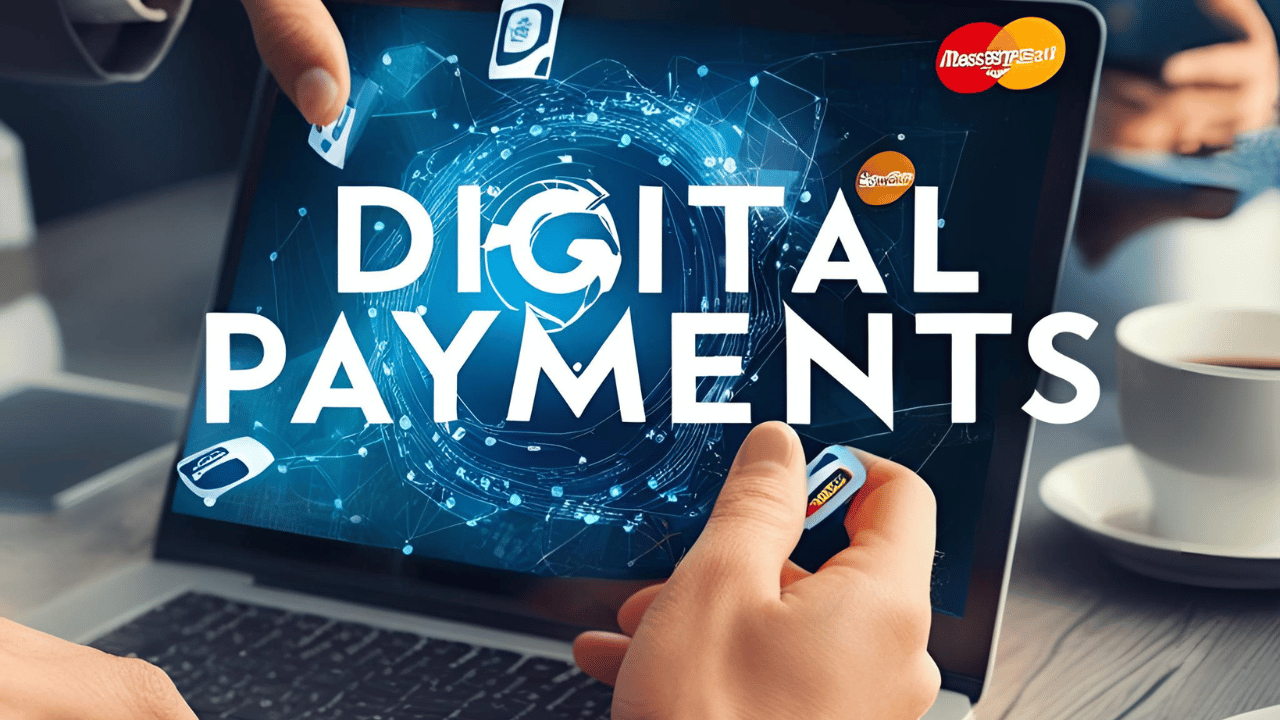We are seeing a rapid transformation in the economy after the rise of mobile wallets, net banking, and other mode of contactless payment. In the article, we will explore how digital payments impact the economy. We will discuss the main benefits, challenges, and future trends.
What are Digital Payments
In 2025, digital payment has already become so popular that everyone knows at least the basic concept of it. It is a financial transaction made digitally to eliminate the need to carry physical cash. People do such transactions using their mobile wallets, bank transfers, and debit and credit cards, by using digital payment platforms like Google Pay, PayPal, Apple Pay, etc.
Digital payments are convenient, and have the ability to drive economic growth due to this reason the government and businesses are encouraging it.

The Economic Benefits of Digital Payments
As mentioned digital payments drive economic growth so let’s see what are the economic benefits of digital payments.
How Digital Payments Boost the Growth of the Economy
Digit Payments are great for fast and more efficient payment so they enhance the financial transaction. Using digital payment businesses can operate seamlessly without being dependent on cash. It improves productivity and reduces the delays in payments.
Somehow digital payments contribute to the GDP by increasing commerce and trade activities and the cashless economy is very helpful for businesses as it allows them to expand their reach, it is great for cross-border trade and also enhances financial stability.
Enhance financial inclusion with Digital Transactions
In developing countries, banks are not available everywhere so many people lack access to traditional banking services. Anyhow, if people have bank accounts then still it is not near to their home but they have a smartphone and internet too. So, it is easy for them to use digital payment methods to make payments without wasting time.
For economic empowerment, internet banking, mobile banking solutions, microfinance institutions, and digital wallet have become essential tools.
Reducing Corruption and Fraud through the Digital Payment
People who are involved in corruption and illegal activities prefer cash transactions as it’s not transparent and no government agencies can detect it. But in digital payments transactions are recorded and traceable. it creates a transparent financial system.
Digital Payments reduce tax evasion, bribery, and fraud too. It leads to a cleaner and more accountable economy.
It creates benefits for governments and financial institutions by improving the tracking of financial transactions. ensuring better compliance and regulations for what? The tax collection.
Benefits from Cashless Transactions to the Businesses
Digital Payments speed up the transitions and reduce operational costs and this is ultimately beneficial for businesses. Automated payment processing reduces human errors and of course, it improves record keeping.
Also, It benefits businesses in expanding their customer base by accepting online orders and online payments, it boosts sales and revenue.
After the availability of digital payments, e-commerce platforms, and digital marketplaces have had great growth due to the convenience and efficiency because of online transitions.
Driving Financial Technology Innovation
Have you heard of FinTech technology? Actually, because of the rise of digital payments has led to advancements in payment technologies like FinTech technology. New digital payment solutions like blockchain-based payments, AI-driven payment systems, and contactless payment methods, are emerging and enhancing security, convenience, and better accessibility. Such innovations are driving economic progress and creating new jobs. Also, strengthening the country’s financial ecosystem.
Strengthening Government Revenue with Digital Transactions
Governments can collect better taxes if the public uses digital transactions. As we already have mentioned digital transactions are transparent so it reduces cash-based dealings that go unreported. Resulting, governments can collect taxes more effectively which leads to increased public funding for infrastructure, education, and healthcare.
Challenges in Digital Payment Adoption
In this article, we have mentioned that digital payment reduces fraud but at the same time, there are threats in it because of the lack of awareness in users.
Cybersecurity Threats and Digital Transactions:
As digital transactions grow, cyber threats like hacking and identity theft risk increases. But it can be managed by the users. Users must keep strong security measures to protect their financial data and records. Government authorities must enforce strict cybersecurity laws to secure digital financial transactions.
High Transaction fees:
In some developing nations or even in some developed nations too there are digital payment platform that charges transaction fees which is a burden for consumers and small businesses. In order to increase the adaptation of digital payments the regulators and payment providers must try to find ways to make it more cost effective. However, we hope advancements in technology and the competition among service providers will lower the platform charges and will become cost-effective.
Future of Digital Payments
Decentralized financial systems like Cryptocurrency and blockchain technology transforming digital payments as they offer secure, fast, and transparent transactions without involving any intermediaries.
Governments and institutions are trying to integrate cryptocurrency and central bank digital currency into mainstream economies.
Biometric Authentication Other Security Measures:
Authentication systems like facial recognition and fingerprint scanning are enhancing the security of digital payments. Also, soon we will have AI-driven tools for fraud detection and risk management.
Role of AI in Payment Automation:
AI is growing and it’s introducing us to new tools and technologies such as nowadays payment automation can be done through AI chatbots. Thanks to AI we have got a voice-activated payments system. Businesses are using AI-powered solutions for streamlined solutions and enhancing financial decision-making.
Expansion of Contactless and Mobile Payments:
People adopting contactless and mobile payments worldwide. Platforms like PayPal, Google Pay, Apple Pay, PhonePe, and other UPIs are becoming more prevalent and making safer and faster transactions.
Conclusion
Digital Payments are playing a crucial role in shaping the growth of modern economies. They reduce the corruption and enhance financial inclusion. As per reports, online payments or digital payments boost the economic growth of the countries.
However, there are challenges like the risk of hacking, many users are still not aware of the security concerns, infrastructure limitations, and all that. But government and institutions are working on these challenges and issues.
